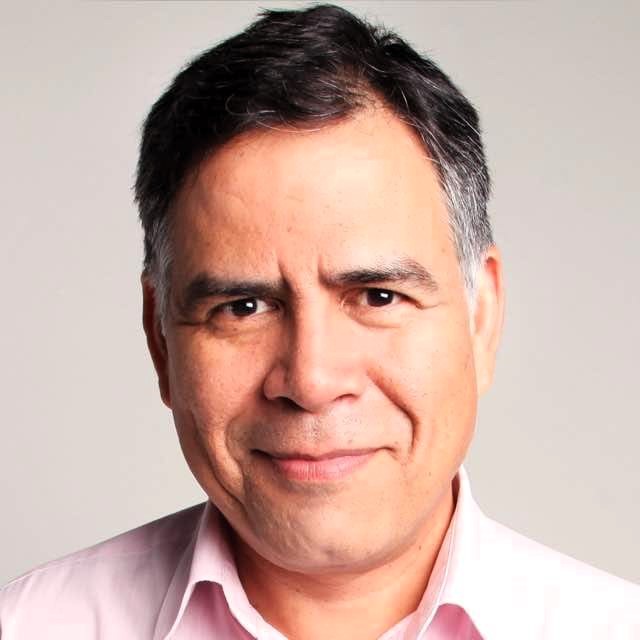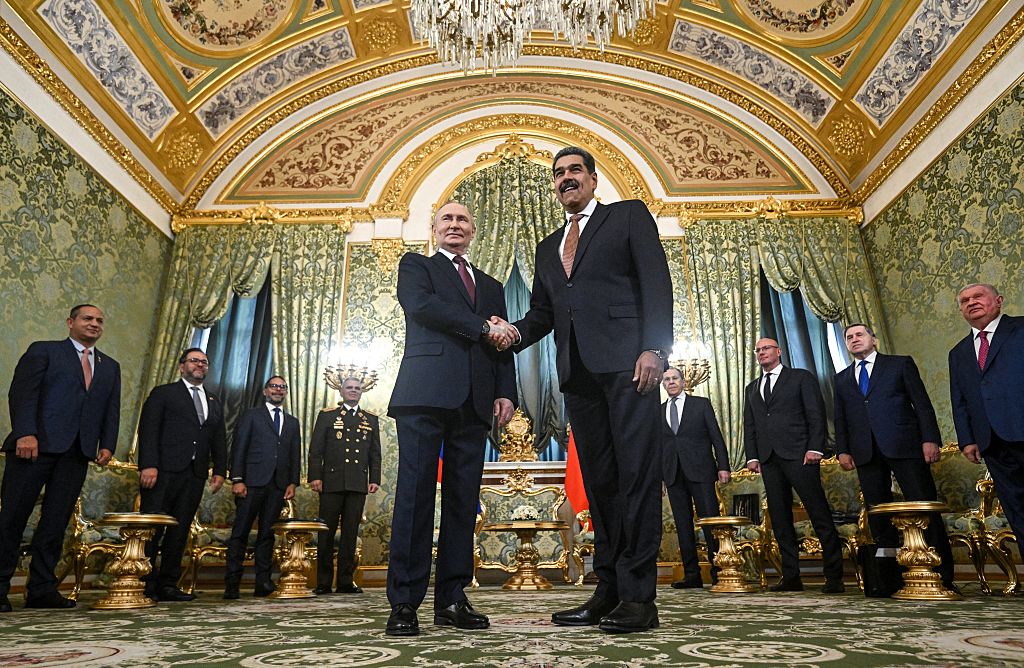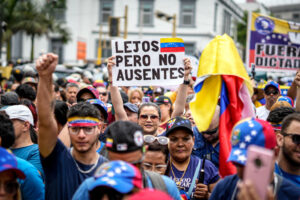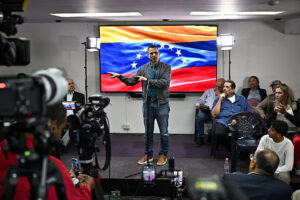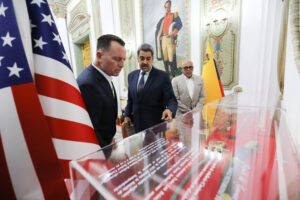CARACAS – Early last month, during Venezuela’s Independence Day celebrations, Nicolás Maduro proclaimed that his government would advance the development of missile and anti-missile systems with Russia’s help. The announcement was reinforced by a parade showcasing military equipment acquired from the Kremlin during the oil boom. Today, the Russian artifacts serve as a symbolic deterrent in a shifting geopolitical environment as Venezuela faces increasing international isolation.
Maduro’s demonstration of military cooperation with Moscow was not an isolated event: the day before the parade, his government and the Russian state arms conglomerate Rostec had announced the opening of a factory to manufacture ammunition for Kalashnikov assault rifles in Maracay, a city about 75 miles from Caracas. The plant, one of the few inaugurated in the country’s impoverished industrial park, has the capacity to produce 70 million cartridges per year, and will include manufacturing the infamous AK103 rifles.
“This is an important step in the development of technological cooperation with our key partner in Latin America,” Rostec’s executive director Oleg Yevtushenko said about the plant. Other production facilities are planned to be launched soon, he added, “ensuring a complete cycle of production of ammunition and Kalashnikov assault rifles for the Venezuelan Army, police, and other law enforcement agencies.”
The concept of this plant — the first of its kind in the Americas — began during the administration of the late President Hugo Chávez, more than two decades ago, but was delayed for years by allegations of corruption, lack of political will, and funding. Its revival and completion not only consolidate military ties between Caracas and Moscow but also confirm both governments’ strategic interest in strengthening ties amid renewed tensions between Russia and the U.S.
A “perfect harmony”
The relationship between Russian President Vladimir Putin and Maduro has been brewing for years, and since 2013 they have met over ten times while keeping a regular exchange of messages and phone calls. Now, however, both leaders are forced to move quickly to finalize agreements and reap their benefits. Maduro needs to show the world that he has powerful friends who can help him rescue Venezuela’s declining economy, and Putin wants to remind the U.S. that he has a loyal partner in Latin America, just 1,600 miles from Florida.
“Today, our relationship has reached a strategic association level,” Putin said in April in a virtual event with Maduro in which they celebrated the 80th year of diplomatic relations between the two countries.
During recent years, their relationship has advanced in multiple areas, as Maduro has eviscerated the nation’s democratic anchors to stay in power. The two countries have about 350 bilateral agreements in place covering military and defense cooperation, espionage and counterespionage, aerospace technology, “nuclear energy for peaceful purposes,” mining, automobiles, and even the integration of financial systems. The Russian-Venezuelan bank Evrofinance Monsnarbank, for example, “functions successfully” in Caracas since 2014, and the MIR payment system cards have been accepted in the country.
Additionally, the countries maintain an active trade in weapons, vehicles, fertilizers, food, vodka, rum, tourism services, cooperation on sports and education, and drugs such as insulin and, since the pandemic, COVID-19 vaccines. Geropharm has been exporting medicines to Venezuela since 2019, and in May, the two countries announced plans to expand their collaboration in pharmaceuticals. During this process, Venezuela has become the sixth-largest buyer of Russian weapons in the world and the largest in the Americas, according to the Arms Transfers Database compiled by the Stockholm International Peace Research Institute (SIPRI). Most importantly, Russia has provided key help in selling Venezuelan crude overseas to bypass U.S. oil sanctions.
“There is perfect harmony between Russia and Venezuela,” Maduro proclaimed in May, after meeting with Putin in Moscow during the celebration of the 80th anniversary of the end of World War II. On the occasion, they signed a 10-year alliance, renewable every five years, which, according to official rhetoric and media, “makes Venezuela Russia’s main partner in the region.”
In fact, Russia has been a vital partner in purchasing Venezuelan oil, usually through hidden transactions and India’s refineries, involving companies like Reliance Industries Limited, according to Evan Ellis, research professor of Latin American Studies at the Strategic Studies Institute at the United States Army War College. “This has the potential to irritate President Trump, although it has remained under the radar so far,” he told AQ.
Since Trump returned to the White House, the U.S. policy toward Venezuela has been characterized by transactional deals to swap prisoners and an erratic stance on oil licenses for U.S. companies operating in the country, such as Chevron. In late July, the Department of the Treasury’s Office of Foreign Assets Control (OFAC) sanctioned the “Cartel de los Soles” as a Specially Designated Global Terrorist, labeling it as a criminal group “headed by Nicolas Maduro Moros and other high-ranking Venezuelan individuals in the Maduro regime.” On August 7, the State Department and the Department of Justice doubled the reward for information leading to the arrest or conviction of Maduro to $50 million, on the grounds of being “one of the largest narco-traffickers in the world.”
Echoes of Cuba
In many ways, Maduro’s Venezuela is to Russia what Cuba was to the former Soviet Union: the main pawn in the Americas of a country hostile to the U.S. The alliance conflicts with Western interests and worries Washington’s foreign policymakers.
And while Maduro repeats the Kremlin’s rhetoric, he is trying to strengthen his own power project: forming alliances in all areas to support an unpopular government he hopes to keep in power for another three decades. Maduro claims that bilateral agreements with Russia represent a “maximum level of cooperation,” while about 50 democracies refuse to recognize his government following the fraudulent July 2024 presidential elections. In May, the government-controlled National Assembly approved a new national development plan for 2025-2031 called “The Seven Transformations,” which states that countries such as Russia, China, and Iran, all at odds with the Trump administration, will help materialize.
Major Moments in Venezuela-Russia Relations since 2013
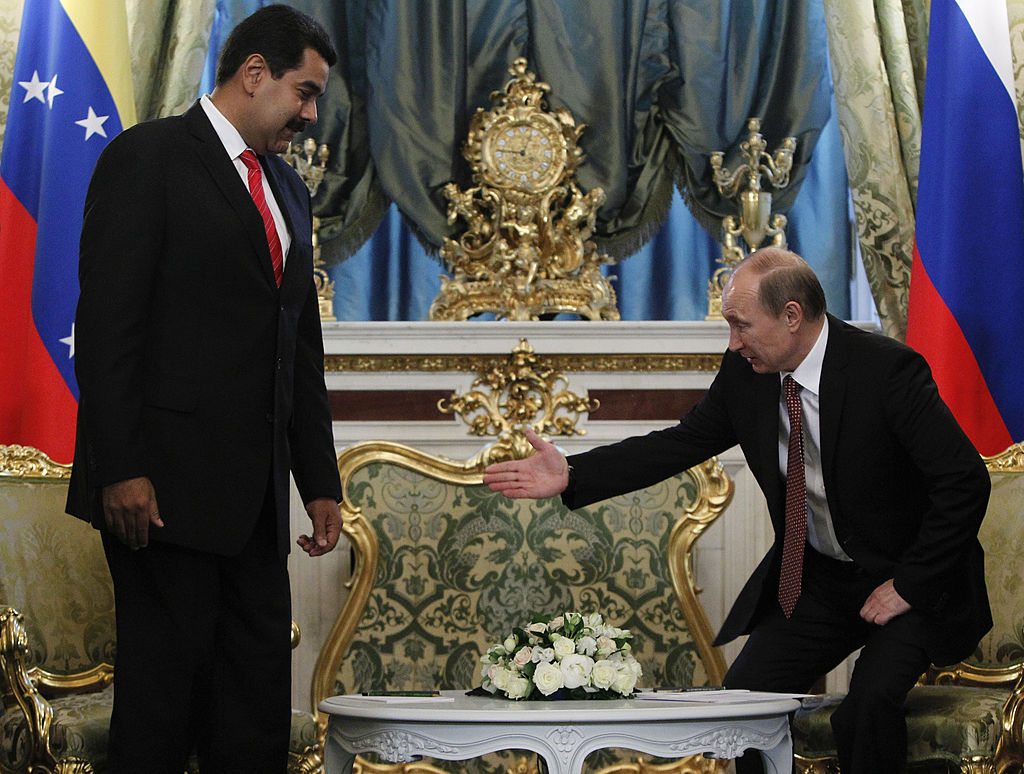
June 2013
Energy agreements
Following the death of Hugo Chávez, his successor, Nicolás Maduro, meets with Vladimir Putin to sign energy agreements. Maduro highlights his alliance with Russia, saying the country will become its “largest oil partner” by 2021.
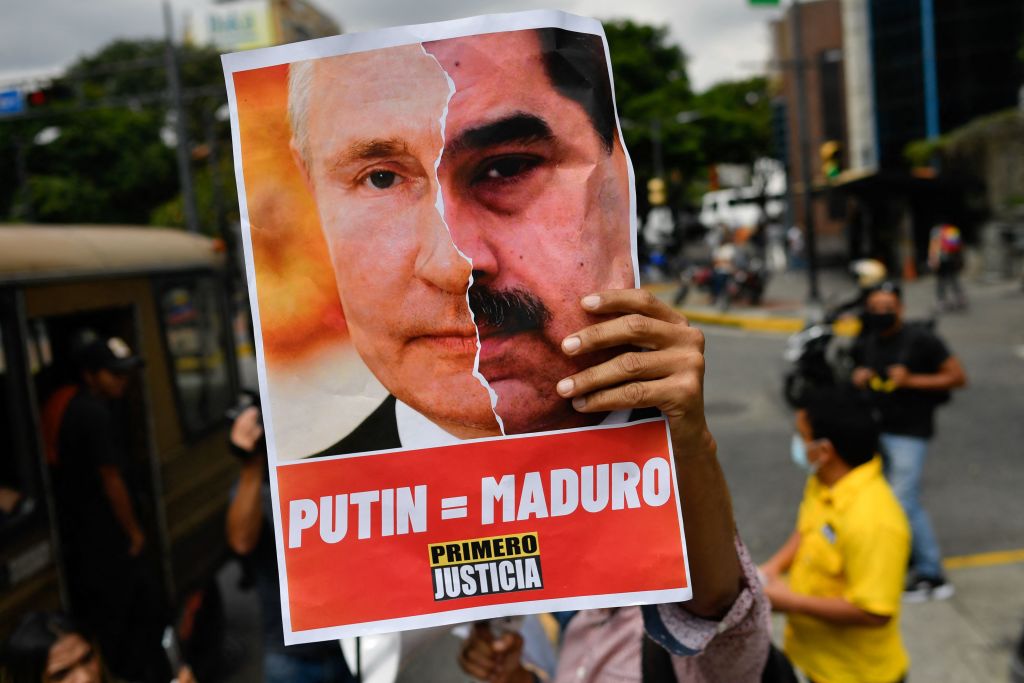
February 2014
Oil-backed loans
Russian oil company Rosneft gives loans to PDVSA, Venezuela’s state-owned oil company, for nearly $8 billion. The oil-backed loans mark a turning point in the energy relationship with Russia.
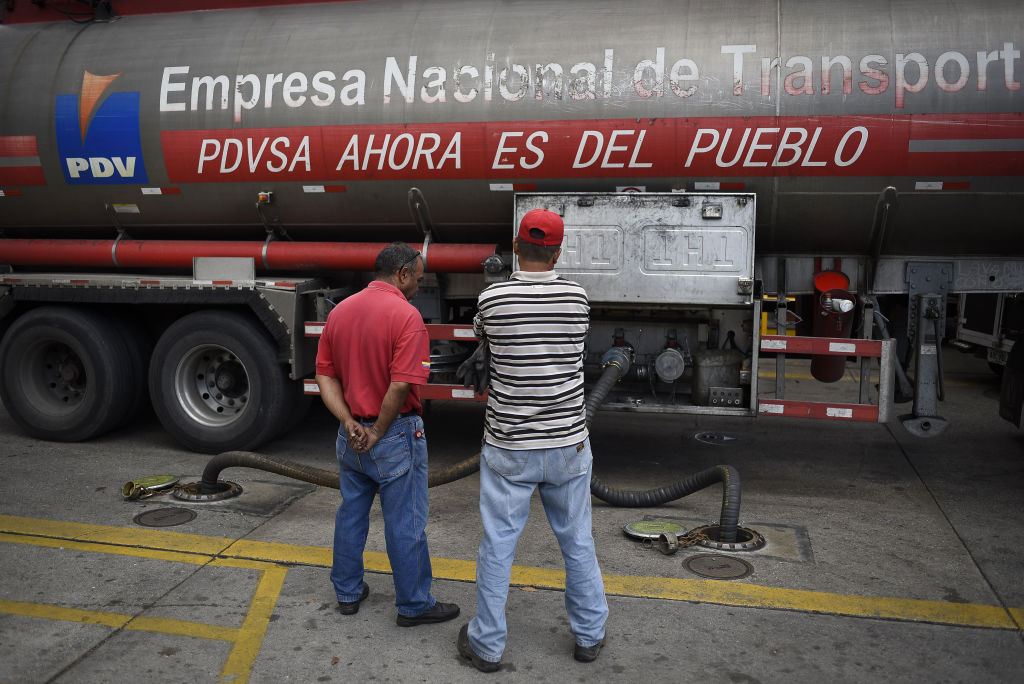
August 2017
U.S. sanctions
Trump signs an executive order prohibiting U.S. banks from purchasing Venezuelan government bonds and/or PDVSA bonds. Russia sells Venezuela 600,000 tons of wheat to alleviate the shortage as part of a trade alliance called Operation Anti-Blockade.
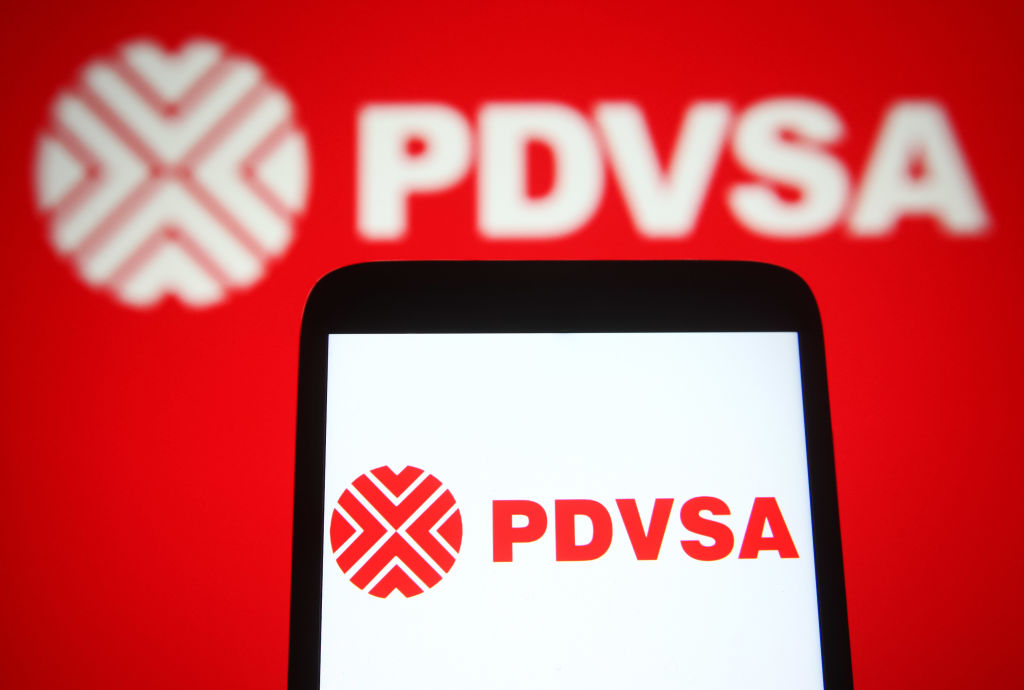
March 2019
PDVSA in Moscow
Venezuela orders the relocation of PDVSA’s European office from Lisbon to Moscow, while expanding its collaboration with Rosneft. The Russian company becomes one of the main selling channels for sanctioned Venezuelan crude oil.
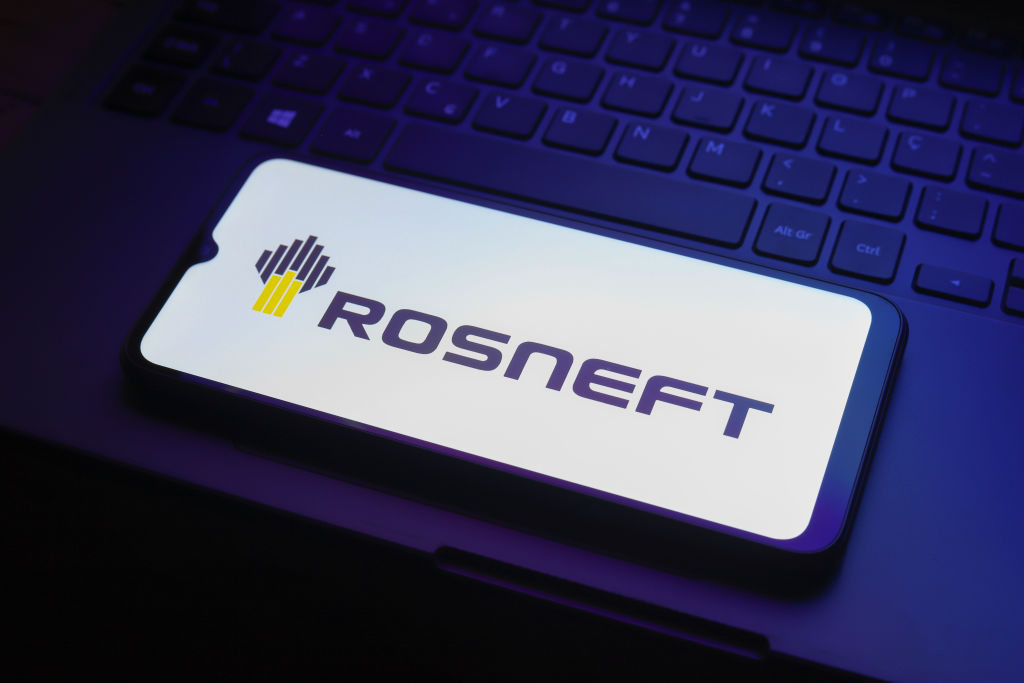
February 2020
Rosneft’s help
A Rosneft branch is sanctioned for helping Venezuela evade sanctions on its domestic crude oil. Rosneft was helping transport Venezuelan crude oil throughout South America.
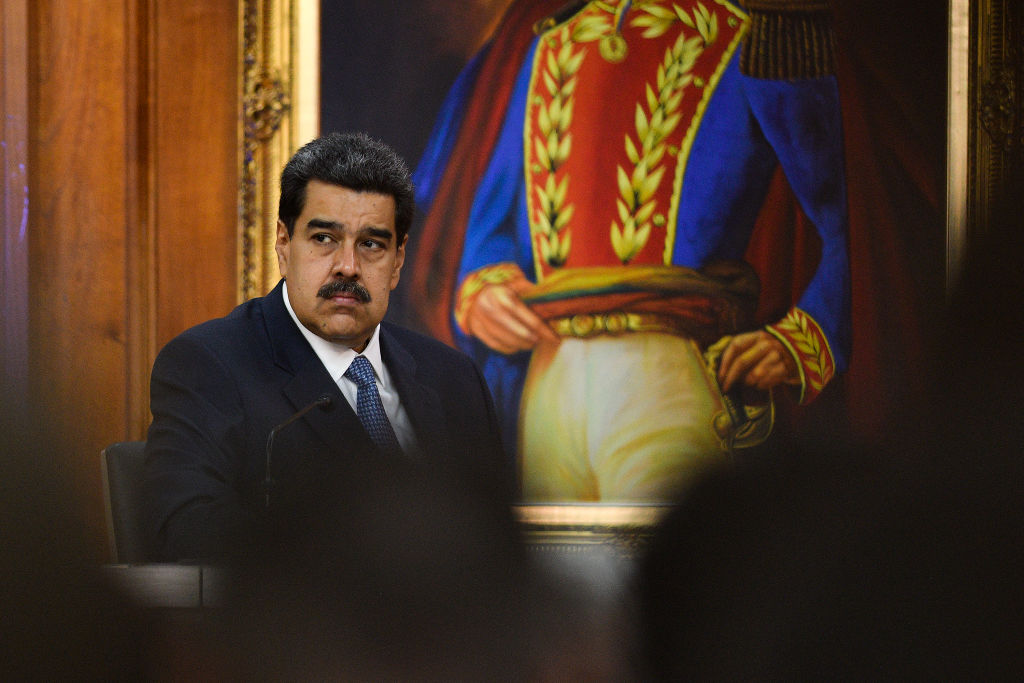
February 2022
Ukraine invasion
Maduro expresses his “support for Russia’s decisive actions” following the invasion of Ukraine and condemns “the destabilizing activities of the U.S. and NATO.”
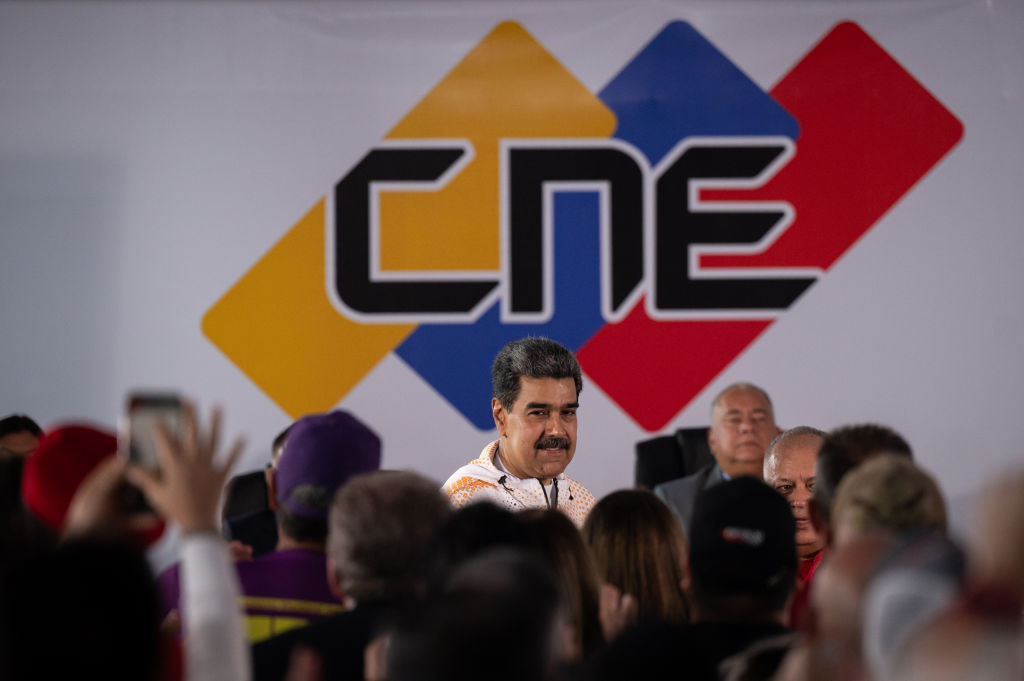
July 2024
Maduro’s reelection
Russia is one of the first countries to recognize Maduro’s victory in the July 28 elections. Today, more than 50 nations do not recognize Maduro’s government as legitimate.
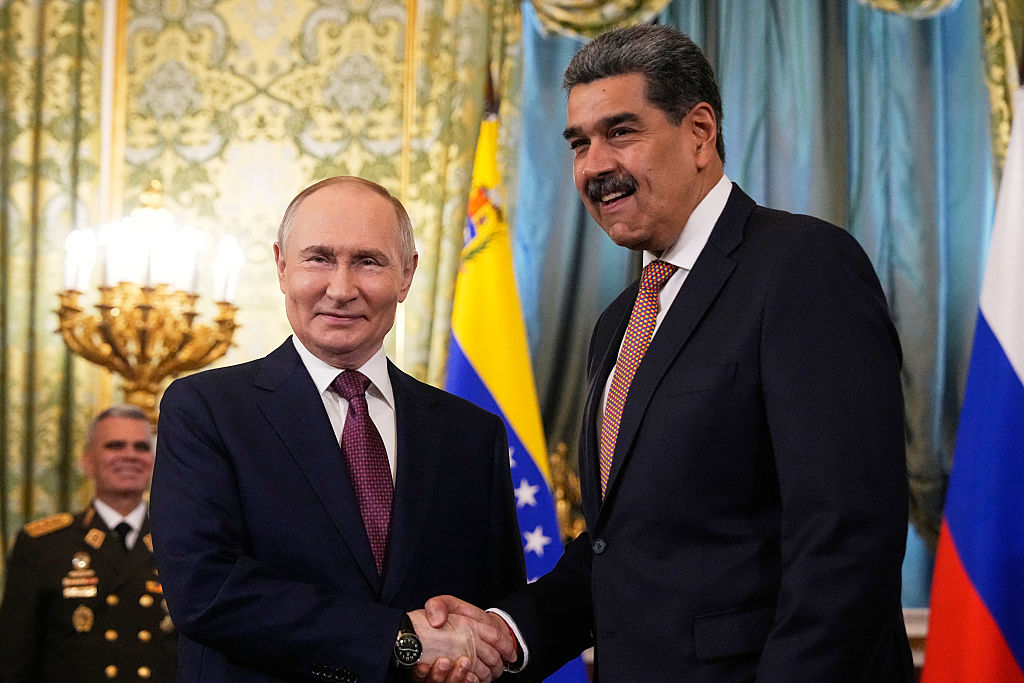
May 2025
Victory Day
Maduro attends the Victory Day celebrations in Moscow, commemorating the defeat of Hitler in World War II. The visit also marks the 80th anniversary of diplomatic relations between the two nations.
Photos: Getty Images
Can Putin measure up?
Given the uncertainty regarding U.S. sanctions — which saw Chevron’s operating licenses revoked and then reinstated last month — cooperation with Russia gains strategic importance as Venezuela’s economy is poised to contract again this year. The little economic growth registered over the past three years does not compensate for more than 70% of GDP contraction endured between 2014 and 2020, according to IMF data. Today, the country’s economy is one of the smallest in Latin America in terms of GDP per capita.
Beyond consumer goods, oil is by far the most geopolitically important area of the bilateral relationship and essential in perpetuating Maduro in power. In partnership with the state-run Petróleos de Venezuela SA (PDVSA), Russia participates in five oil associations in the country through the state-owned Roszarubezhneft, which produced around 120,000 barrels per day last year, according to data compiled by Reuters. While there’s clear potential to increase the output, oil experts argue that Russia has a limited space or desire to expand beyond this level. Russia favors its own market and China’s, and it has to cope with the economic toll of the Ukraine war. Trump and Putin are scheduled to meet in Alaska on August 15 to discuss a potential deal to end the costly confrontation.
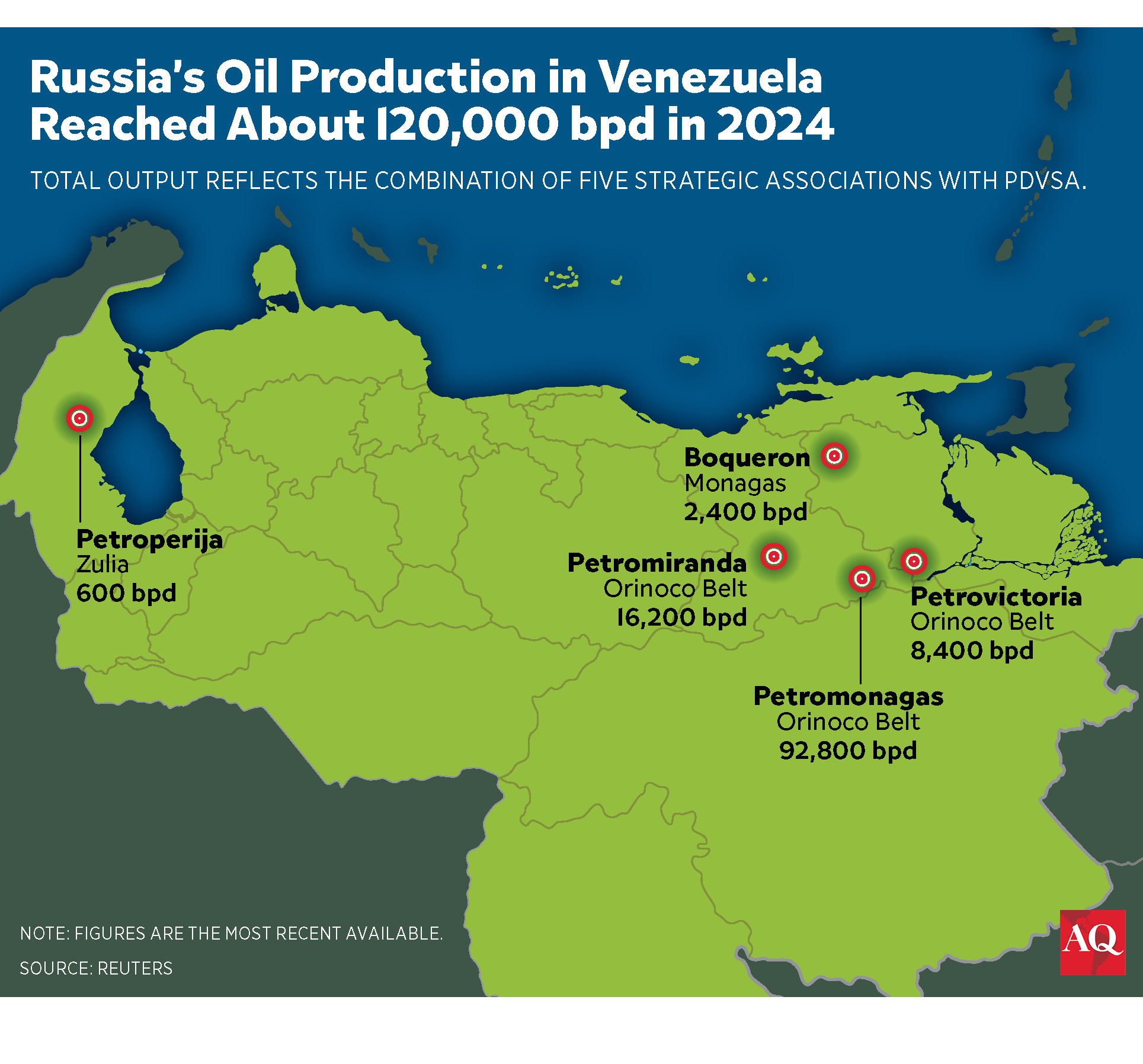
Oil aside, Putin has failed to help Maduro with fresh money. The trade balance between Russia and Venezuela barely reached $1.2 billion in 2024 — far below what Moscow trades with Brazil, Mexico, Chile, and Argentina — according to IMF and Russian Customs data cited by Transparencia Venezuela, a branch of Transparency International, a global coalition dedicated to fighting corruption. According to the organization, since 2018 to May of this year, Russia has not publicly committed new loans to Maduro’s regime.
Transparencia Venezuela estimates that during the golden age of that relationship — between 2004 and 2018 — Russia lent Venezuela a total of $34 billion, mostly for “the purchase of military equipment agreed upon in confidential agreements, without competitive bidding.” The purchases have helped establish Venezuela among the top ten most powerful military forces in Latin America.
Ultimately, today’s relationship is defined by shared political interests. “If it were up to Maduro, we would be almost like a Russian colony, because he needs that relationship, those resources, that money,” activist Mercedes de Freitas, director of Transparencia Venezuela, told AQ. “At this moment, the political relationship is a strategic alignment, but I don’t think advancing it is up to Maduro, but rather Russia and Putin.”
On his trip to Moscow earlier this year, Maduro tried to secure funds and lobbied Putin for Venezuela’s entry to BRICS, whose investment bank he sees as an alternative to sources such as the IMF and World Bank. However, Putin “did not go out of his way to get Venezuela into BRICS,” said de Freitas.
So far, the alliance between Maduro and Putin has been based on anti-Western and anti-U.S. rhetoric. Earlier this year, Russia’s foreign affairs minister, Sergey Lavrov, offered a description of the symbolic value and future of these ties. “Venezuela stands as the epicenter for progressive leftist forces on the continent,” Lavrov wrote in an article to commemorate the diplomatic relations between the two countries. “We acknowledge with appreciation its support for Russia’s efforts to expand collaboration with the region.”
With weakened economies and growing internal and external pressures, both countries are forced to solidify this evolving relationship to reap the benefits. It’s still early to determine if Russia will help Maduro to preserve his regime — navigating another economic collapse — and whether the alliance will gain enough strength to capture Washington’s attention fully.


